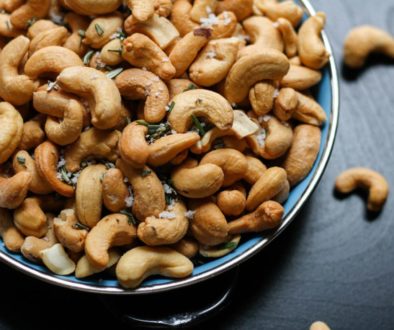High Carb Diet for Diabetes?
With low carb and ketogenic diets achieving so much attention, let’s take a look at some of the data on high carbohydrate diets and their effects on one of the most problematic chronic diseases facing the globe; type 2 diabetes.
High carbs for diabetes? But, aren’t those with type 2 diabetes usually told to avoid carbs? Sure, but the type and quality of the carbohydrate is crucial.
Again, let’s look at the science.
As we have seen, low carb diets have some small positive benefits, but also raise some negative consequences that should not be ignored and undoubtedly need to be studies more in depth.
We can go back as far as 1935 to see the effects of a high carb diet in a study conducted by Rabinowitch.[1] Why look at data from decades ago? Studies like this show how long we have had the backbone of research on beneficial diets to treat diabetes, yet we still look for ways to “beat the system!” Maybe that proves the power of Big Food lobbies to influence what’s on our plate…
Rabinowitch found that high carb low calorie diet led to lower insulin requirements than all other diabetics diets interventions tried at the time. His study was based on the known fact that carbohydrates improve carbohydrate tolerance and insulin sensitivity while fats impair carbohydrate tolerance and insulin sensitivity. After placing 50 subjects on the intervention diet over 5 years, average daily insulin dosages dropped from as much as 60 units to 10.6 units. In 12 subjects, insulin was discontinued altogether on the high carb low calorie diet.
Was it just the calorie restriction that led to better glycemic control? How about a high carb diet that provides as many calories as a lower carbohydrate control diet?
A 1979 study compared a high carb high fiber intervention diet (70% CHO, 21% protein, 9% fat) against a lower carb control diet (43% CHO) providing the same number of calories.[2] Both diets were vegetarian, and included milk but no eggs. To control blood sugar levels, daily doses of insulin needed were significantly lower for all subjects on the high carb high fiber diet than on the control diet. In most subjects, insulin doses were decreased after as little as 3 days on the diet. Fasting plasma blood glucose levels were lower for most subjects on the high carb high fiber diet despite receiving lower insulin doses. Cholesterol levels dropped nearly 60 points in the high fiber diet pattern. Interestingly, however, the changes in insulin doses needed and blood sugar levels were comparable regardless of the fiber content of the diet. The changes were therefore most likely attributed to the carbohydrate content of the diets. And, importantly, when subjects on the high carb high fiber intervention diet returned to conventional diet lower in carbs and fiber, their insulin doses increased to levels seen in the control diet.
More recently, researchers compared a vegan diet consisting of fruits, vegetables, grains, legumes, and no portion restrictions, providing 75% of calories from carbohydrates against an omnivorous diet which allowed low-fat animal products based on the American Dietetic Association (ADA) diet principles, providing 60-70% of calories from carbohydrates with minimal saturated fat and cholesterol.[3] The study aimed to determine which diet was more effective for controlling type 2 diabetes. The majority of the study subjects were obese or overweight and both diets involved calorie reduction. After 22 weeks, the subjects following the vegan diet lost 13 lbs while those on the ADA diet lost less than 10 lbs. Among the most medically-stable subjects who needed no diabetes medication changes, the vegan group lost even more weight and the control group lost less weight. HbA1C levels (which tells clinicians someone’s average blood sugar reading over the previous 3 months) were reduced in both groups, but the impact seen in the vegan diet group was more than 3 times greater. LDL cholesterol levels fell more than 21% among the vegan group and less than 11% in the ADA group. Among the medication stable subjects, HbA1C, LDL cholesterol levels, weight, and waist circumference are decreased more significantly among subjects following the vegan diet.
In this study, both the low-fat vegan diet and the portion-controlled ADA diet were successful in lowering blood sugar and cholesterol levels. However, the improvements were more pronounced with the low-fat vegan diet.
Vegan diets are cholesterol-free, low in saturated fat, and high in soluble fiber, which has a cholesterol-lowering effect. And, as the study authors point out, this is an important point because cardiovascular complications are the main cause of morbidity and mortality among those with type 2 diabetes.
With over 10% of Americans diagnosed with T2DM[4], more attention needs to be given to diet and diet composition. A registered dietitian nutritionist can work with you to create the diet that works best for you. Either way, feel good knowing you can tell your friends that the risks of the keto diet outweigh the benefits long term. so you’re making a smart choice avoiding the low-carb keto bandwagon.
Citations:
1. Rabinowitch, I. M. Effects of the High Carbohydrate – Low Calorie Diet Upon Carbohydrate Tolerance in Diabetes Mellitus. Canadian Medical Journal., 1935,136-144
2. Anderson J, Ward K. High-carbohydrate, high-fiber diets for insulin-treated men with diabetes mellitus. (1979) American Journal of Clinical Nutrition 32:2312-2321
3. Barnard N, Cohen J, Jenkins D, et al. A Low-Fat Vegan Diet Improves Glycemic Control and Cardiovascular Risk Factors in a Randomized Clinical Trial in Individuals with Type 2 Diabetes. (2006) Diabetes Care 29(8) 1777-1783
4. National Diabetes Statistics Report, 2020. Centers for Disease Control and Prevention. 2020. https://www.cdc.gov/diabetes/library/features/diabetes-stat-report.html accessed on June 21, 2020


July 9, 2020 @ 2:54 pm
This is a very intersting article
July 22, 2020 @ 2:30 am
Thank you for visiting my page